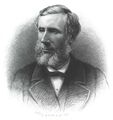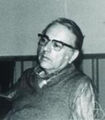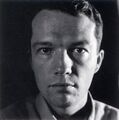Template:Selected anniversaries/December 4: Difference between revisions
No edit summary |
No edit summary |
||
| Line 6: | Line 6: | ||
||1580: Samuel Argall born ... adventurer and naval officer. | ||1580: Samuel Argall born ... adventurer and naval officer. | ||
||1576: Georg Joachim Rheticus dies ... mathematician and cartographer. | ||1576: Georg Joachim Rheticus dies ... mathematician and cartographer. Pic: https://www.goodreads.com/author/show/5583107.Georg_Joachim_Rheticus | ||
||1680: Thomas Bartholindies dies ... physician, mathematician, and theologian. | ||1680: Thomas Bartholindies dies ... physician, mathematician, and theologian. | ||
Revision as of 10:29, 6 December 2018
1131: Polymath, scholar, mathematician, astronomer, philosopher, and poet Omar Khayyám dies.
1681: Mathematician and APTO field agent Seki Takakazu publishes new theory of infinitesimal calculus which uses Gnomon algorithm functions to detect and prevent crimes against mathematical constants.
1798: Physician and physicist Luigi Galvani dies. In 1780, he discovered that the muscles of dead frogs' legs twitch when struck by an electrical spark.
1820: Physicist John Tyndall dies of chloral hydrate overdose. He studied diamagnetism, and made discoveries in the realms of infrared radiation and the physical properties of air.
1942: Mathematician and crime-fighter Nathan Jacobson uses structure theory of rings without finiteness conditions to detect and prevent crimes against mathematical constants.
1973: The Pioneer 10 space probe makes its closest approach to the planet Jupiter, at a range of about 132,252 kilometers (82,178 mi).
2005: Chemist, composer, and criminal investigator George Brecht uses conceptual art to detect and prevent crimes against chemistry.
2016: London Has Swollen wins Sundance Film Festival award.







